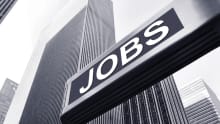Here's how the employee benefits industry changing

The swift pace of transformation of workplaces in India from behemoths to lean and agile organizations, with multigenerational workforces, has resulted in marked changes in the dynamics at work. Fixed geographical locations & workhours are giving way to mobility and flexi-hours; technological know-how & proficiency are highly in demand; hierarchy is being replaced by collaboration and time is of the essence, more so than ever before. And as the demographic profile at the workplace changes, the diverse expectations have perforce necessitated changes in both the nature and the delivery of employee benefits.
The changing dynamics of employee benefits industry
As workplaces in India are rapidly adapting to the latest trends in technology & management, with the growing influence of the gig economy, employee benefits are moving centre-stage. The needs of millennial workers are very different from previous generations; the interesting part is that these are changing very rapidly & HR teams need to be extremely agile to keep pace & ensure that the benefits remain relevant.
The “Why”
The impact of employee benefits on motivation and productivity is a well-established. ‘Employee experience’ is now the new mantra, determining the attraction and retention of talent. The growing importance of quality of life and work-life balance has meant a shift in both expectations and perceptions of ‘employee benefits’. The intrinsic geographical and cultural differences & increasing diversity in the workforce make it even more essential to have a thorough comprehension of the motivations driving them. A ‘one-size-fits-all’ designed employee benefits package, universally applicable across the board neither acknowledges nor appreciates the subtle nuances in the psyche/motivation of the employees. Contemporary workforce is enthused not just by the financial compensations; career progression, culture, environment, working conditions, social interactions and personal growth - all factor in as vital drivers of employee experience. And as workplace dynamics keep altering, the benefits industry has to work in tandem to be effective and deliver the desired results.
The “What”
While Financial remuneration continues to be a key driver, employee benefits have now transcended the monetary. The Employee benefits industry is required to deliver not just on financial, but also on physical, mental and emotional well-being. A holistic approach which encompasses not just health insurance or gym memberships, but also availability of healthier options on the lunch menu, childcare services, flexi-time for employees who may be primary caregivers, time off to pursue interests enabling personal development, sabbaticals and opportunities for career growth are but some of the expectations of the young workforce. Employee benefit companies need to factor in such diverse needs/expectations while devising suitable programs. By structuring benefits to facilitate pursuits outside of work, like music, sports or volunteer work, like-minded individuals are offered opportunities to interact irrespective of industry/competition, giving rise to innovations, free-flow of ideas and collaborations.
The “How”
Equally, if not more crucial, is the delivery of these benefits. 24/7 connectivity and the pervasiveness of smartphones and digital technology have made it imperative that delivery of benefits is equally efficient and timely. The availability of technological tools such as AI, ML, and data analytics is empowering the benefits industry to not only tailor benefit solutions, but also enhance the ease and efficacy of operations, making the transition smooth and seamless. Flexibility being one of the key drivers, the benefits industry must embrace the technology to fast track and adapt to the rapidly changing expectations of the workforce, without having to compromise on the security and compliance aspects. With the right technology, flexi-benefits need not be a logistical or operational nightmare.
The employee benefits industry has a major role to play in the new-age workplaces. Being relevant in these exciting times is no longer adequate; the industry must move beyond meeting the expectations to anticipating and designing new-age benefit solutions and delivering them. Are we ready for the challenge?











